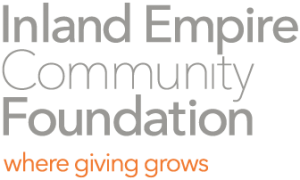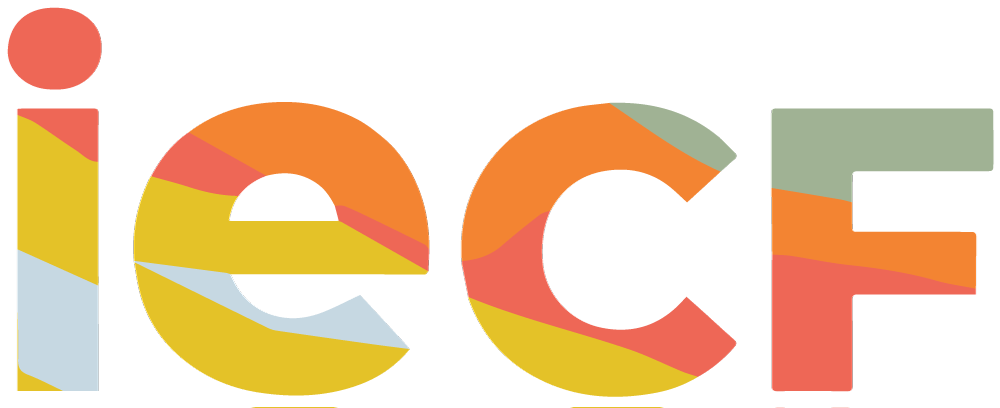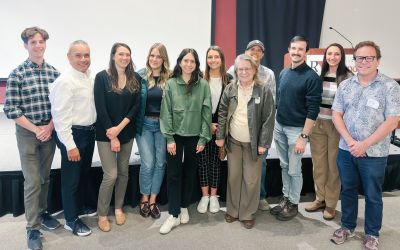
RFFC partners and program managers (LtoR): Jacob Byrne, Department of Conservation; David Hernandez, IECF; Susie Kirschner, Inland Empire Resource Conservation District; Heather Marlow, Resource Conservation District of Greater San Diego County; Sarah Kevorkian, Mountains Recreation & Conservation Authority; Madison Killebrew, Irvine Ranch Conservancy; Rorie Skei, Santa Monica Mountains Conservancy; Stan Hill, Resource Conservation District of Greater San Diego County; Blair Crossman, Rivers and Mountains Conservancy; Natalie Chapman, Department of Conservation; Kealii Bright, Department of Conservation
On November 13, 2024, Celia Cudiamat, Chief Impact Officer at IECF, and David Hernandez, Regional Forest and Fire Capacity Coordinator and Shared Stewardship Advisor, attended the SoCal Regional Wildfire Resilience Convening at the University of Redlands. This gathering, hosted by Inland Empire Resource Conservation District, California Fire Science Consortium, and the University of Redlands, brought together leaders from government agencies, nonprofit organizations, and academic institutions to discuss strategies for improving wildfire resilience in Southern California. The event emphasized collaboration and the sharing of innovative approaches to address wildfire risks and promote forest health across the region.
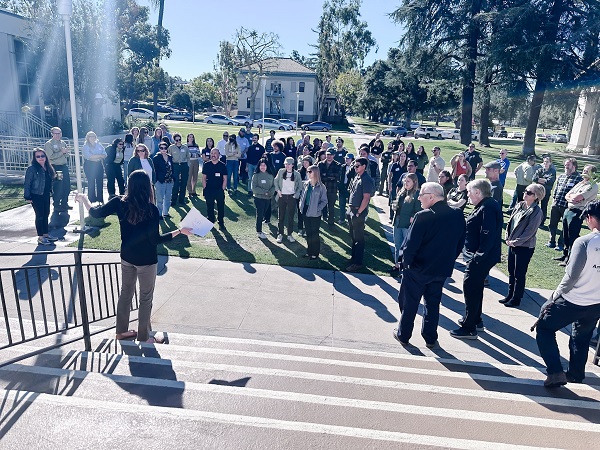
Networking session
Reflecting on the day, David Hernandez said, “The SoCal Regional Wildfire Resilience Convening was an incredible opportunity to connect with leaders across the region who are deeply committed to addressing the challenges of wildfire resilience. At IECF, we’re focused on developing a Regional Priority Plan that incorporates the expertise and insights of regional leaders, builds capacity within our communities, and aligns with state and federal strategies to protect both people and natural resources. Events like this are invaluable in strengthening partnerships and advancing our shared mission to foster resilience and sustainability in the face of increasing wildfire risks.”
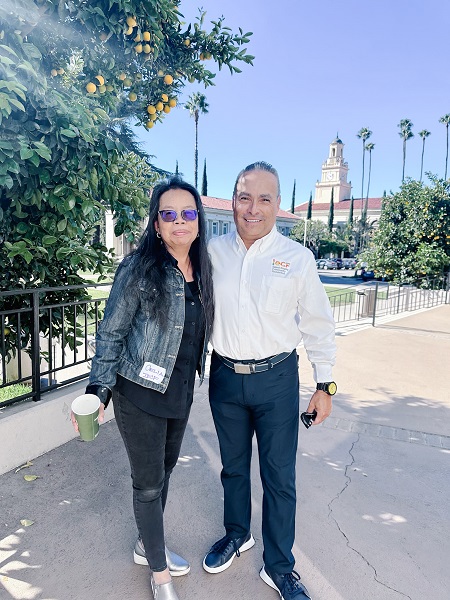
Celia Cudiamat and David Hernandez
The day opened with a coffee networking session, followed by welcome remarks from Susie Kirschner of the Inland Empire Resource Conservation District and Erin Sanborn of the University of Redlands. Sarah Kevorkian of the Mountains Recreation and Conservation Authority contextualized the meeting’s purpose, framing it within the broader landscape of organizations working on wildfire resilience.
A series of agency updates followed, with insights from Jeff Heys, Dania Gutierrez, and Lauren Blake of the USDA Forest Service; Gregg Bratcher and Nico Alegria of CAL FIRE; and Keali’i Bright of the California Department of Conservation. Kristen Merrill from the California Wildfire & Forest Resilience Task Force shared updates on statewide initiatives, offering a comprehensive view of current policies and programs
The convening also showcased regional program updates. Heather Marlow of the Southern California Wildfire Resilience Partnership highlighted their efforts to unify wildfire resilience initiatives across the region. Royal Ramey from the Forestry and Fire Recruitment Program emphasized the importance of workforce development in creating equitable solutions, while Austin Parker of the USGS SPARCS Program shared cutting-edge data applications for wildfire management.
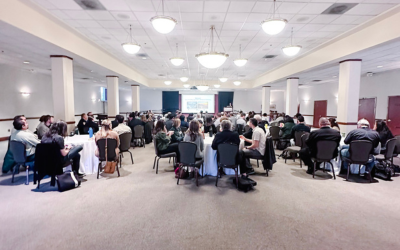
SoCal Regional Wildfire Resilience Convening at the University of Redlands
Post-fire restoration and reforestation were explored in depth during presentations by Ian Turner and Thierry Rivard on El Dorado’s post-fire restoration efforts and Madeline Sides on climate-informed reforestation guidance. These sessions provided actionable insights into recovering ecosystems and integrating climate resilience into forest management practices.
A highlight of the day was the panel discussion on fuel treatment strategies in chaparral ecosystems, moderated by Nicole Molinari of the USDA Forest Service. Panelists included Megan Jennings of San Diego State University, Mike Rohde of Rohde and Associates, Ryan White from San Diego Gas and Electric, Jeff Heys from the USDA Forest Service, and Ian McBride from CAL FIRE. They discussed the challenges and opportunities in balancing wildfire risk reduction with ecological integrity.
At IECF, we align our work with the Vital Conditions Framework, which highlights the basic needs every member of a community must have to thrive—like safe housing, access to education, and a healthy natural world. Supporting a thriving natural world is essential for building stronger, healthier, and more sustainable communities for everyone. A key part of this is ensuring that forests, wildlife, and natural spaces are cared for in ways that reduce wildfire risks and promote long-term well-being. Through our wildfire resilience projects, IECF is helping communities prepare for and recover from wildfires while restoring and protecting the environment, creating a region where everyone thrives – no exceptions.
The Regional Forest and Fire Capacity (RFFC) program is a statewide initiative, administered by the Department of Conservation under the auspices of the California Natural Resources Agency. Learn more about the work we’re doing through a 2-year block grant here.
Stay up to date on all the good we’re doing through the power of philanthropy. Sign up for our monthly eNewsletter today!
